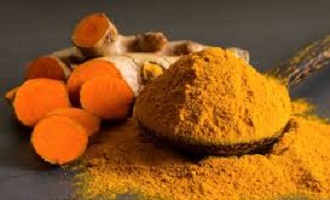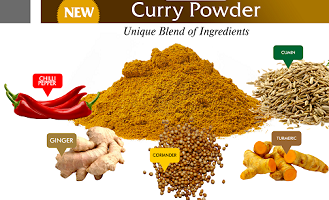What Are The Main Benefits Of Turmeric?
What Are The Main Benefits Of Turmeric?

“Turmeric, like other vibrant plant-based foods, is high in phytonutrients, which may protect the body by neutralizing free radicals (pollution, sunlight) and protecting cells from damage.”
Plant-based diets have been linked to preventing medical conditions such as cancer and heart disease.
Table of Contents
What are the top 5 turmeric benefits?
5 benefits of turmeric
- Turmeric increases antioxidants in your body gradually
- Turmeric may prevent cancer
- Turmeric lowers cholesterol.
- Can aid in the prevention and treatment of Alzheimer’s disease
- Turmeric can treat skin conditions.
10 proven turmeric and curcumin health benefits
- Turmeric can aid in diabetes management
- Turmeric could help prevent cancer
- Turmeric aids in cholesterol reduction
- Turmeric can aid in the prevention and treat Alzheimer’s disease
- Turmeric may help prevent cancer
- Curcumin may be useful in treating Alzheimer’s disease
- Arthritis patients respond well to curcumin supplements
- Curcumin has benefits against depression
- Curcumin may help delay aging and fight age-related chronic disease
- Turmeric increases antioxidants in your body gradually
Turmeric has appeared seemingly everywhere, from everyday snacks like popcorn and crackers to Instagram-worthy golden milk lattes and soups. But what are the potential health benefits of turmeric, and how effective is it?
What is turmeric?
Turmeric, a member of the ginger family, is a plant native to Southeast Asia that is widely used in India for upper respiratory tract conditions, skin disorders, joint health, and digestive health.
The medicinal properties of turmeric are derived from the plant’s roots. It is dried and then processed into a paste or capsule.
Turmeric is a centuries-old spice that many experts regard as one of the most potent and effective herbs.
It has been used for centuries and is still used today to prevent and treat a variety of ailments.
Over 10,000 published studies discuss the benefits of this spice and its application in the treatment of diseases and illnesses.
Many people claim that curcumin, a compound found in turmeric, has a greater effect than some prescription drugs.
Curcumin is the primary active component of turmeric and is responsible for the spice’s distinctive yellow color.
Curcumin is responsible for the majority of turmeric’s potential health benefits.
Turmeric, as well as its active ingredient curcumin, may have anti-inflammatory, anticancer, antioxidant, and other properties.
What are turmeric and curcumin?
Turmeric is the spice responsible for the yellow color of curry.
It has been used as a spice and medicinal herb in India for thousands of years. Science has recently begun to support traditional claims that turmeric contains compounds with medicinal properties.
These substances are known as curcuminoids. Curcumin is the most important.
Turmeric’s main active ingredient is curcumin. It has potent anti-inflammatory properties and is a potent antioxidant.
Here are the top 5 scientifically proven turmeric and curcumin benefits.
- Turmeric contains bioactive compounds with medicinal properties
- Curcumin is a natural anti-inflammatory compound
- Turmeric can increase the body’s antioxidant capacity
- Curcumin can increase brain-derived neurotrophic factor
- Curcumin may lower your risk of heart disease.
How to use turmeric

The Cleveland Clinic recommends taking 500 mg to 1000 mg of turmeric twice a day as a supplement, but it’s best to get a personalized recommendation from your doctor.
You can also reap the benefits of turmeric by using it as a spice, combining it with your favorite smoothie ingredients, or making a curry sauce.
To maximize absorption, take the supplement with a meal that includes healthy fats like avocado or olive oil.
Not ready to make a supplement commitment?
While cooking with turmeric does not provide the same health benefits, you can still reap the benefits by adding it to:
- Smoothies.
- Milk That Is Golden.
- Soups.
- Eggs.
- Muffins.
- Rice.
- Roasted Vegetables.
Turmeric’s negative effects
- It may cause stomach upset.
- It thins your blood and may cause contractions.
In conclusion
Turmeric, and particularly its most active compound, curcumin, has numerous scientifically proven health benefits, including the ability to improve heart health and prevent Alzheimer’s and cancer.
It has anti-inflammatory and antioxidant properties. It may also help with depression and arthritis symptoms.
While these benefits are possible, they are currently limited due to curcumin’s low bioavailability, and more research is required.
Benefits of turmeric tea ~ here are 7 potential benefits of turmeric tea.
- Provides Some Nutrients. Curcumin Takes Center Stage In Most Discussions Of Turmeric’s Health Benefits.
- Contains Bioactive Compounds.
- Naturally Low in Calories.
- A Great Bedtime Tea.
- May Promote Heart Health.
- It may Improve Mood.
- Works as a Natural, plant-based dye.
What are the benefits of turmeric, ginger, and lemon?
Turmeric, lemon, and ginger are high in antioxidants and anti-inflammatory compounds that cleanse the body and strengthen the immune system.
- Turmeric is beneficial to skin health.
- Lemon has anti-aging and anti-inflammatory properties, while ginger is said to be beneficial to the digestive system.
Benefits of Turmeric Milk
- Anti-inflammatory ~ turmeric contains curcumin, which is a potent antioxidant. Curcumin, which is present in turmeric milk, is also a powerful antioxidant.
- Immunity booster.
- Delays diabetes.
- Reduces the risk of heart disease.
- Reduces the risk of cancer.
- Aids in the treatment of Alzheimer’s disease
Benefits of Turmeric and Black Pepper
Because of the compounds curcumin and piperine, turmeric, and black pepper, both have health benefits.
Male Turmeric Advantages ~ Turmeric benefits for men
Turmeric’s 7 Male Health Advantages
- Improves Cardiovascular Function.
- Supports Libido
- Improves Joint Function.
- Improves Muscle Recovery
- Improves Male Reproductive Health
- It may Aid in Weight Loss.
Turmeric Skin Benefits
Spice It Up: 7 Turmeric Benefits for Skin
- May Aid in the Healing of Acne. This works on several levels.
- Lightens Hyperpigmentation
- Treats Dull Skin.
- Reduces Dark Circles
- Protects Against Environmental Damage
- Prevents Premature Aging
What is turmeric ~ what is turmeric good for?
It was traditionally used in India to treat skin, upper respiratory tract, joint, and digestive system disorders.
Turmeric is now promoted as a dietary supplement for a wide range of ailments, including arthritis, digestive disorders, respiratory infections, allergies, liver disease, depression, and more.
Is turmeric the same as ginger?
The active constituents of ginger (Zingiber officinale) are gingerol, Shogaol, and Zerumbone, whereas turmeric (Curcuma longa) contains three active major curcuminoids: curcumin, demethoxycurcumin, and bisdemethoxycurcumin.
How to take turmeric
Turmeric should be consumed with meals to aid absorption. It’s also a good idea to divide it into two doses separated by 8 to 12 hours.
This will aid absorption and keep levels stable in the body. Dividing the dose may also aid in reducing potential side effects
What Are the Turmeric Skin Benefits?
- Enhances the natural glow of your skin. Turmeric is thought to be a powerful ingredient for skin lightening and revealing glow.
- Treats Acne Breakouts.
- Aids Atopic Dermatitis.
- Slows Skin Aging.
- Aids Psoriasis.
- Reduces Dark Circles.
- Moisturizes Dry Skin.
- Turmeric Masks.
Turmeric Serious Side Effects
- Risk of Excessive Bleeding
- Gastrointestinal Problems
- Increased Risk of Gallstones and Gallbladder Issues
- Lowers Blood Pressure
- Increased Risk of Kidney Stones
- Pregnant and Breastfeeding Women
- Nausea and Diarrhea
People also ask
What are the top ten turmeric benefits?
10 Turmeric Benefits
- Turmeric gradually boosts antioxidant levels in the body.
- Turmeric Has the Potential to Prevent Cancer.
- Turmeric aids in the reduction of cholesterol.
- Turmeric Can Aid in the Prevention and Treatment of Alzheimer’s disease
- Turmeric Can Treat Skin Conditions.
- Turmeric Can Benefit People with Depression.
Is turmeric safe to consume before going to bed?
Turmeric, a member of the ginger family, is regarded as a common medicinal spice that can be used to improve sleep quality while also lowering anxiety, improving mood, and promoting relaxation.
What conditions can turmeric treat?
Turmeric has been used for centuries as a medicine to treat wounds, infections, colds, and liver disease.
Curcumin, a compound found in turmeric, has been shown in studies to reduce inflammation in the body.
Benefits of turmeric for women
7 Benefits of turmeric for women
- It’s an anti-inflammatory. Turmeric is commonly used to fight inflammation
- It promotes skin health
- It may alleviate arthritis symptom
- It can cause skin wounds to heal faster.
- It may prevent heart disease
- It may prevent depression.
- It can be used as an anti-aging supplement.
Is it safe to take turmeric on a daily basis?
The World Health Organization determined that 1.4 mg of turmeric per pound of body weight is safe for daily consumption.
It is not recommended to take high doses of turmeric for an extended period of time. There hasn’t been enough research done to guarantee safety.
Consult your doctor if you want to use turmeric to relieve pain and inflammation.
Can turmeric help you lose belly fat?
“Besides reducing inflammation associated with obesity, consumption of turmeric increases the metabolic rate, which helps burn calories faster in the body,” Seema Singh, chief clinical nutritionist & HOD, Fortis Hospital, Vasant Kunj, told indianexpress.com.
Turmeric water or tea can help you lose belly fat.
What are the five turmeric benefits?
What are the five most important health benefits of turmeric?
- Contains Bioactive Compounds With Protective Properties;
- May Help Relieve Arthritis;
- May Improve Cognitive Function;
- May Reduce The Risk Of Cardiovascular Disease; And
- May Help The Immune System.
How should turmeric be consumed?
Turmeric should be consumed with meals to aid absorption. It’s also a good idea to divide it into two doses separated by 8 to 12 hours.
This will aid absorption and keep levels stable in the body.
Dividing the dose may also aid in reducing potential side effects.
What diseases does turmeric protect against?
It was traditionally used in India to treat skin, upper respiratory tract, joint, and digestive system disorders.
Turmeric is now promoted as a dietary supplement for a wide range of ailments, including arthritis, digestive disorders, respiratory infections, allergies, liver disease, depression, and many more.
How quickly does turmeric start working?
Between 4 and 8 weeks
According to the available research, turmeric’s antioxidant effects can be felt between 4-8 weeks.
One study discovered that turmeric had a stimulating effect on SOD activities after about 6 weeks.
“The available research suggests that the antioxidant effects of turmeric can be felt after 4-8 weeks.”
What are the adverse effects of turmeric?
Turmeric rarely causes serious side effects. Mild side effects such as stomach upset, nausea, dizziness, or diarrhea may occur in some people.
At higher doses, these side effects are more common. Turmeric is probably safe to use on the skin.
How much turmeric should I take each day?
The daily dose of turmeric powder is about 3 grams, which is equivalent to a teaspoon.
Is it safe to consume turmeric every night?
The health advantages of drinking haldi doodh every night
It will not only help you build muscles, get stronger, and fitter, but it will also help you regulate your blood sugar levels.”
However, in order for exercise to work and continue to work, we must recover from the stimuli of exercise.
Photo Credit


